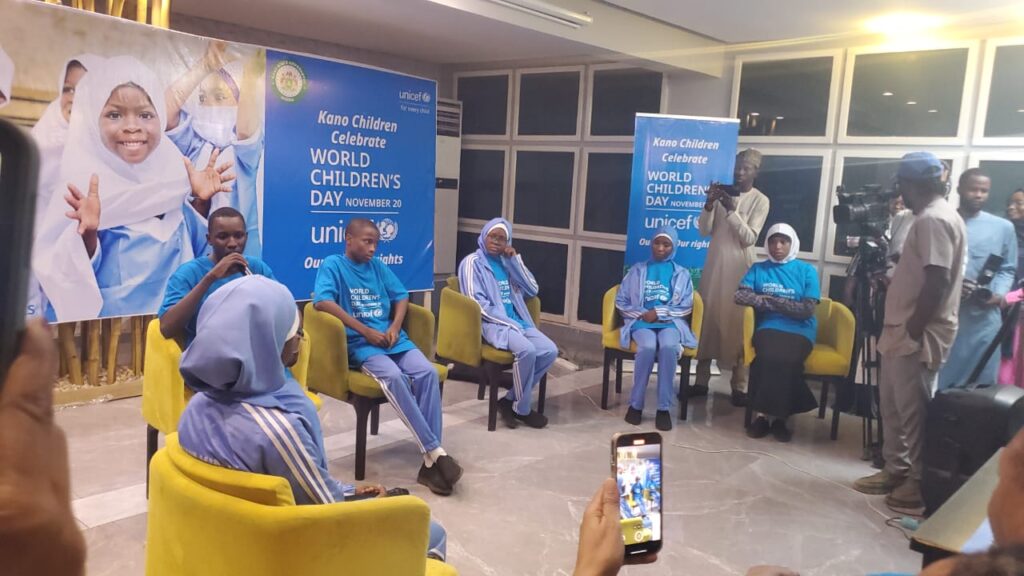The United Nations Children’s Fund (UNICEF) has called on the Kano State Government to strengthen investments in child survival, education, and protection, particularly through improved vaccination coverage, nutrition, and climate-resilient learning environments.
The Chief of Field Office, UNICEF Kano, Mr. Rahma Rihood Mohammad Farah, made the call during a media dialogue to commemorate World Children’s Day.
Farah emphasized the need for government at all levels to deliver vaccines and nutrition to every child, invest in inclusive and safe climate-resilient schools, and expand mental health and child protection services.
According to him, ensuring clean water, sanitation, and hygiene in all schools and health facilities, alongside expanding social protection to reach the most vulnerable families in Kano, Katsina, and Jigawa, will significantly reduce child poverty and improve well-being.
Farah noted that with UNICEF’s support Katsina State recently achieved Open Defecation Free (ODF) status, making it the second state in Nigeria after Jigawa to attain the milestone.
“Katsina is also implementing a large-scale birth registration programme to ensure every child has a legal identity, in line with Article 7 of the UN Convention on the Rights of the Child”
The chief hinted that, UNICEF and the Katsina State Government are addressing sexual and gender-based violence (SGBV), including child marriage, through community-led interventions.
“In Kano State, UNICEF partnerships continue to address immunization gaps through the solarization of Primary Health Care (PHC) facilities with support from Gavi and partners”
“The generous support of the FCDO has enabled UNICEF to renovate and upgrade 27 PHCs in Kano and 12 in Jigawa under the CRIBS project, significantly strengthening maternal, newborn and child health services,”
The chief of field office,explained that,UNICEF has also commissioned functional medical oxygen plants, boosting child survival, while education sector support includes the integration of Qur’anic schools into formal schooling and the rollout of the Nigeria Learning Passport, which expands digital learning opportunities in Kano, Katsina, and Jigawa.
He however stressed that, in the WASH sector, UNICEF partnerships contributed to Jigawa and Katsina attaining ODF status and facilitated the rehabilitation of water and sanitation facilities in schools and health institutions through the CRIBS initiative.
While acknowledging progress made, Farah stressed that “the job is not done,” insisting that urgent, sustained, and collective action is required to ensure Nigerian children survive, learn, and thrive.
“To truly transform the lives of children in Kano and across Nigeria, systems and services must be strengthened. Children dream of futures they may never experience unless we act,”
He called on government, stakeholders, development partners, civil society, and communities to work together to protect and support every child.
Farah reaffirmed UNICEF’s commitment to collaborating closely with state governments to build a safe and dignified future for all children.
“The evidence is clear Nigeria has made progress, but we must accelerate efforts. Children in Katsina, Kano, Jigawa, and across the nation deserve nothing less than our full commitment,”
He urged journalists to study and widely disseminate findings from The Nigerian Child report.
Farah concluded by emphasizing the importance of World Children’s Day, describing it as a global celebration of “our most precious gift from God—our children.”





